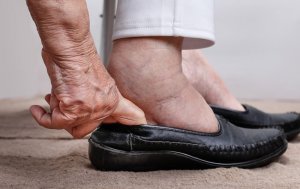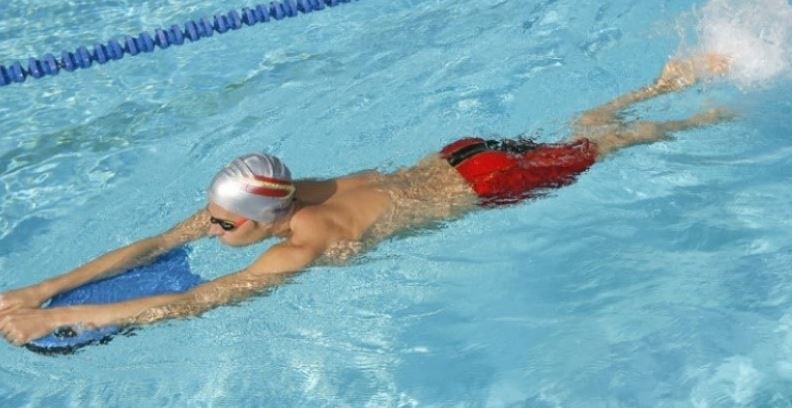Tips to Prevent Water Retention

Water retention is a problem that most women deal with. This is due to the fact that water retention is often a side effect of menopause, pregnancy, or menstruation. Additionally, it may also be a side effect of liver, kidney, and heart diseases.
Water retention can also occur in many cases as a result of unhealthy eating habits. Therefore, this article will present you with some tips to prevent water retention.
Food Tips to Prevent Water Retention
– Increase your consumption of foods that are rich in water and electrolytes, such as fruits and vegetables.
– Try to consume eight glasses of water each day. If you have a hard time drinking water, you can substitute it with sugar-free natural juices or herb infusions. You can try adding citrus juice to the water to give it some flavor.

– Control your salt intake. Try to put only a small amount of salt in food, or even try to replace it with aromatic herbs or other condiments.
– Avoid or reduce your consumption of sugar-rich foods as much as possible.
– Do not forger to eat a lot of protein, because if this is missing from your diet, your albumin is reduced, which can lead to an accumulation of fluid between the tissues.
– It is also convenient to drink tea and herbal infusions that have a diuretic effect.
– Finally, try to avoid consuming drinks with gas, caffeine, or refined sugar.
Natural remedies to prevent water retention
– You must do some physical activity every day if possible, and for at least half an hour. When you exercise, you stimulate blood circulation and this will prevent problems such as, blood clots.
You can take a walk, ride a bicycle … but the best thing you can do, is to go swimming. This is a low impact activity where no unnecessary pressure is exerted on the ankles, feet, or legs.

– It is important to take an adequate amount of rest, since it will help to prevent water retention.
– Try not to sit for too long or too often. If you must sit for long periods at work for example, try to give yourself a break every hour to stretch your legs and walk a little.
– Another very important point to remember is to not wear clothes that are too tight.
– Drink dandelion, a flower that has a very powerful diuretic and depurative effect. This flower helps to reduce inflammation of the extremities and helps to eliminate retained fluid.
One way to drink dandelion is through an infusion. Be sure to drink about three cups a day. You can also apply it directly to the affected limbs, with a towel.
– Use Epsom salts in a bath. This is an excellent remedy to reduce swelling in the ankles and other extremities. These salts stimulate circulation and reduce swelling.
One way to do this is to add a cup of Epsom salts to a warm water bath and submerge your whole body in it for 15 minutes. If the swelling is only affecting your ankles and feet, you can prepare the mixture in a bowl and submerge only your feet for 20 minutes.
– Use Aloe Vera, a plant that has multiple benefits for the body, both internally and externally. One of the plant’s most outstanding properties is its anti-inflammatory and depurative effect, which can help combat and prevent water retention that affects the lower extremities.
You can scrape out the Aloe Vera gel and eat two table spoons, accompanied either by juice or water. Another option is to apply the gel directly to the swollen areas.
– Massage your feet and legs. Massages are very relaxing, stimulate circulation, and help in the elimination of retained fluid. Make gentle but firm movements, and always in the direction of the heart.
If you also complement the massage with essential oils that have anti-inflammatory oils such as: mint, eucalyptus, lemon, or lavender, you will see a much greater improvement.
Water retention is a problem that most women deal with. This is due to the fact that water retention is often a side effect of menopause, pregnancy, or menstruation. Additionally, it may also be a side effect of liver, kidney, and heart diseases.
Water retention can also occur in many cases as a result of unhealthy eating habits. Therefore, this article will present you with some tips to prevent water retention.
Food Tips to Prevent Water Retention
– Increase your consumption of foods that are rich in water and electrolytes, such as fruits and vegetables.
– Try to consume eight glasses of water each day. If you have a hard time drinking water, you can substitute it with sugar-free natural juices or herb infusions. You can try adding citrus juice to the water to give it some flavor.

– Control your salt intake. Try to put only a small amount of salt in food, or even try to replace it with aromatic herbs or other condiments.
– Avoid or reduce your consumption of sugar-rich foods as much as possible.
– Do not forger to eat a lot of protein, because if this is missing from your diet, your albumin is reduced, which can lead to an accumulation of fluid between the tissues.
– It is also convenient to drink tea and herbal infusions that have a diuretic effect.
– Finally, try to avoid consuming drinks with gas, caffeine, or refined sugar.
Natural remedies to prevent water retention
– You must do some physical activity every day if possible, and for at least half an hour. When you exercise, you stimulate blood circulation and this will prevent problems such as, blood clots.
You can take a walk, ride a bicycle … but the best thing you can do, is to go swimming. This is a low impact activity where no unnecessary pressure is exerted on the ankles, feet, or legs.

– It is important to take an adequate amount of rest, since it will help to prevent water retention.
– Try not to sit for too long or too often. If you must sit for long periods at work for example, try to give yourself a break every hour to stretch your legs and walk a little.
– Another very important point to remember is to not wear clothes that are too tight.
– Drink dandelion, a flower that has a very powerful diuretic and depurative effect. This flower helps to reduce inflammation of the extremities and helps to eliminate retained fluid.
One way to drink dandelion is through an infusion. Be sure to drink about three cups a day. You can also apply it directly to the affected limbs, with a towel.
– Use Epsom salts in a bath. This is an excellent remedy to reduce swelling in the ankles and other extremities. These salts stimulate circulation and reduce swelling.
One way to do this is to add a cup of Epsom salts to a warm water bath and submerge your whole body in it for 15 minutes. If the swelling is only affecting your ankles and feet, you can prepare the mixture in a bowl and submerge only your feet for 20 minutes.
– Use Aloe Vera, a plant that has multiple benefits for the body, both internally and externally. One of the plant’s most outstanding properties is its anti-inflammatory and depurative effect, which can help combat and prevent water retention that affects the lower extremities.
You can scrape out the Aloe Vera gel and eat two table spoons, accompanied either by juice or water. Another option is to apply the gel directly to the swollen areas.
– Massage your feet and legs. Massages are very relaxing, stimulate circulation, and help in the elimination of retained fluid. Make gentle but firm movements, and always in the direction of the heart.
If you also complement the massage with essential oils that have anti-inflammatory oils such as: mint, eucalyptus, lemon, or lavender, you will see a much greater improvement.
This text is provided for informational purposes only and does not replace consultation with a professional. If in doubt, consult your specialist.








